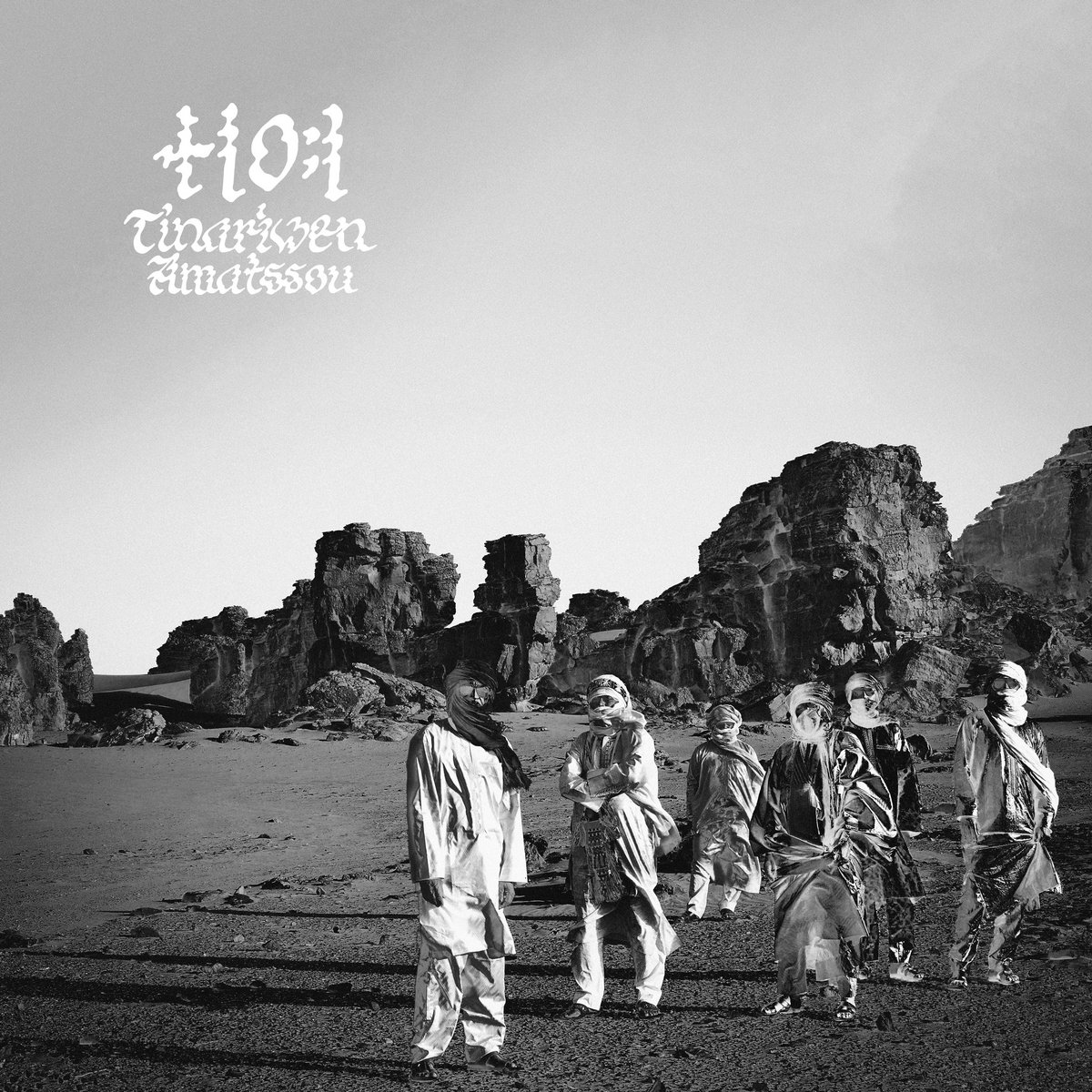Tinariwen
Amatssou
WEDGE
Somewhere between the dreamy bramble of Grateful Dead and the grungy blues of The Rolling Stones exists the Middle Eastern swirl of the Tuareg-language Tinariwen, a six-to-nine-team Malian ensemble who, since 1979, have created a brand of mass hypnosis. Whether it’s their mysterious concentric-circling songs or the collective’s sociopolitical take on the plight and light of the Tuareg people, Tinariwen draw audiences in and hold them magically enthralled.
For their shambling ninth studio project, Tinariwen move further (and with gently crinkled nuance) through their exploratory desert-blues aesthetic by interlocking their groove with the sound and images of American country music. With added production by ambient music wiseman Daniel Lanois on several of its tracks, Amatssou pulls the clicks, shuffles, and swoops of Nashvillian strings—pedal steels, banjos, fiddles—into its usual hurricane’s eye of slithering guitars and West African percussion.
Through its slow, molten-lava churn of mixed-bag strings, Amatssou conjures struggle and connects us to upheaval. “Dear brothers, all rest, all leisure will always be far from reach unless your homeland is liberated and all the elders can live there in dignity,” founding vocalist and guitarist Ibrahim Ag Alhabib’s lyrics translate on “Arajghiyine.”
Speaking to their hopes of breaking down fear (“Amatssou” speaks to that translation in the Tuareg language of Tamasheq), all of Tinariwen’s ninth album—from the blunt “Kek Alghalm” to the expansive likes of “Ezlan” and “Nak Idnizdjam”—asks its listeners to confront, confront, confront—be it adversity, hierarchies, or complacency.







